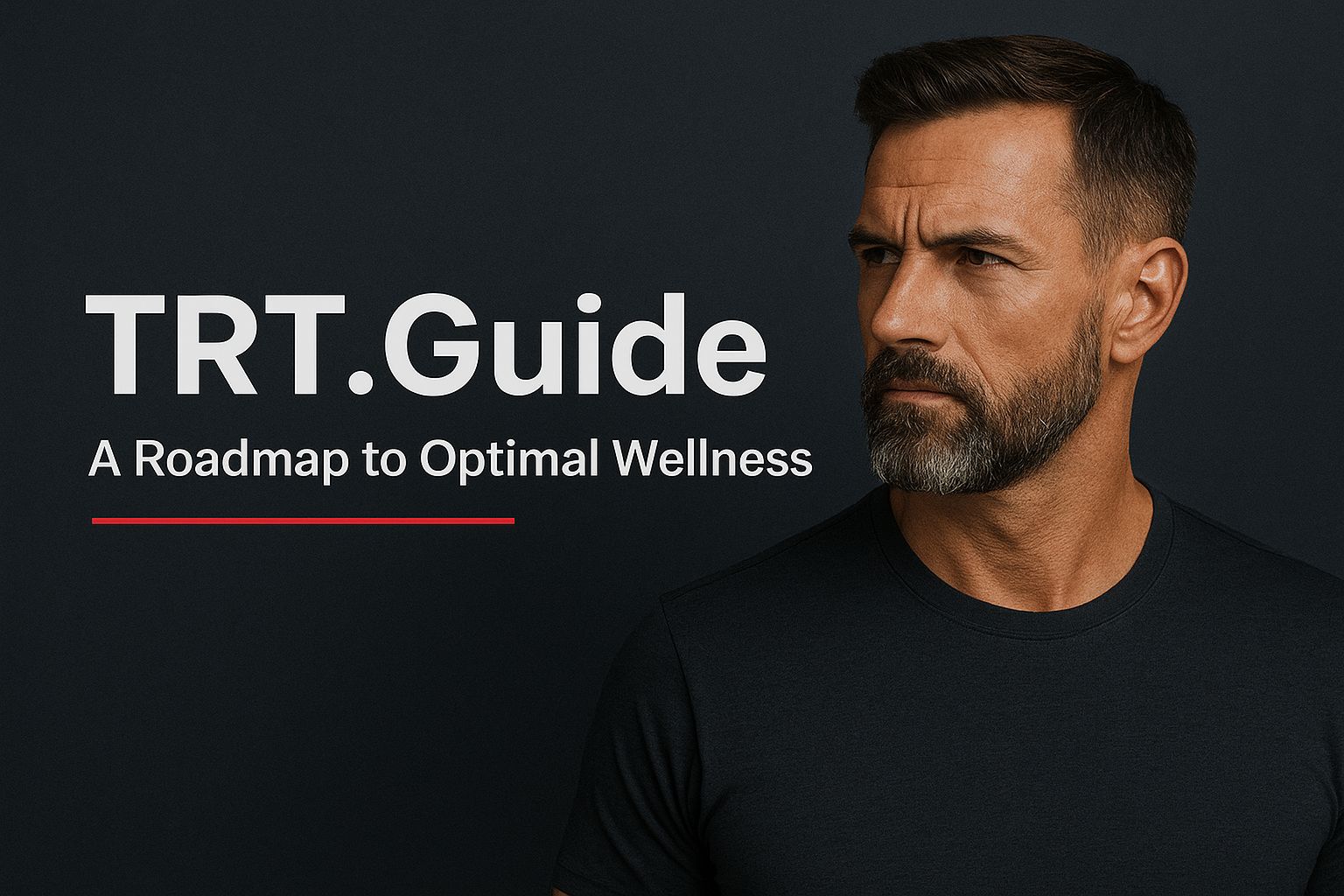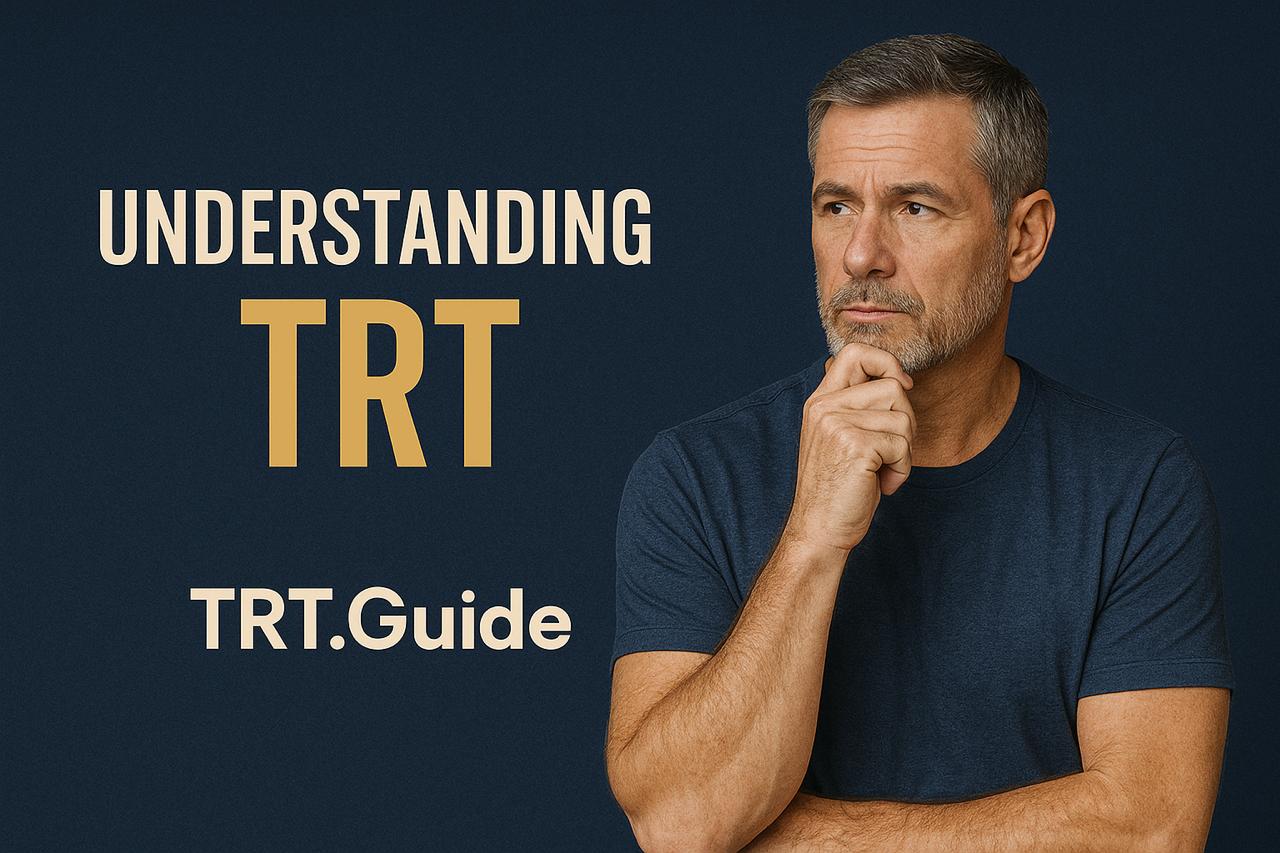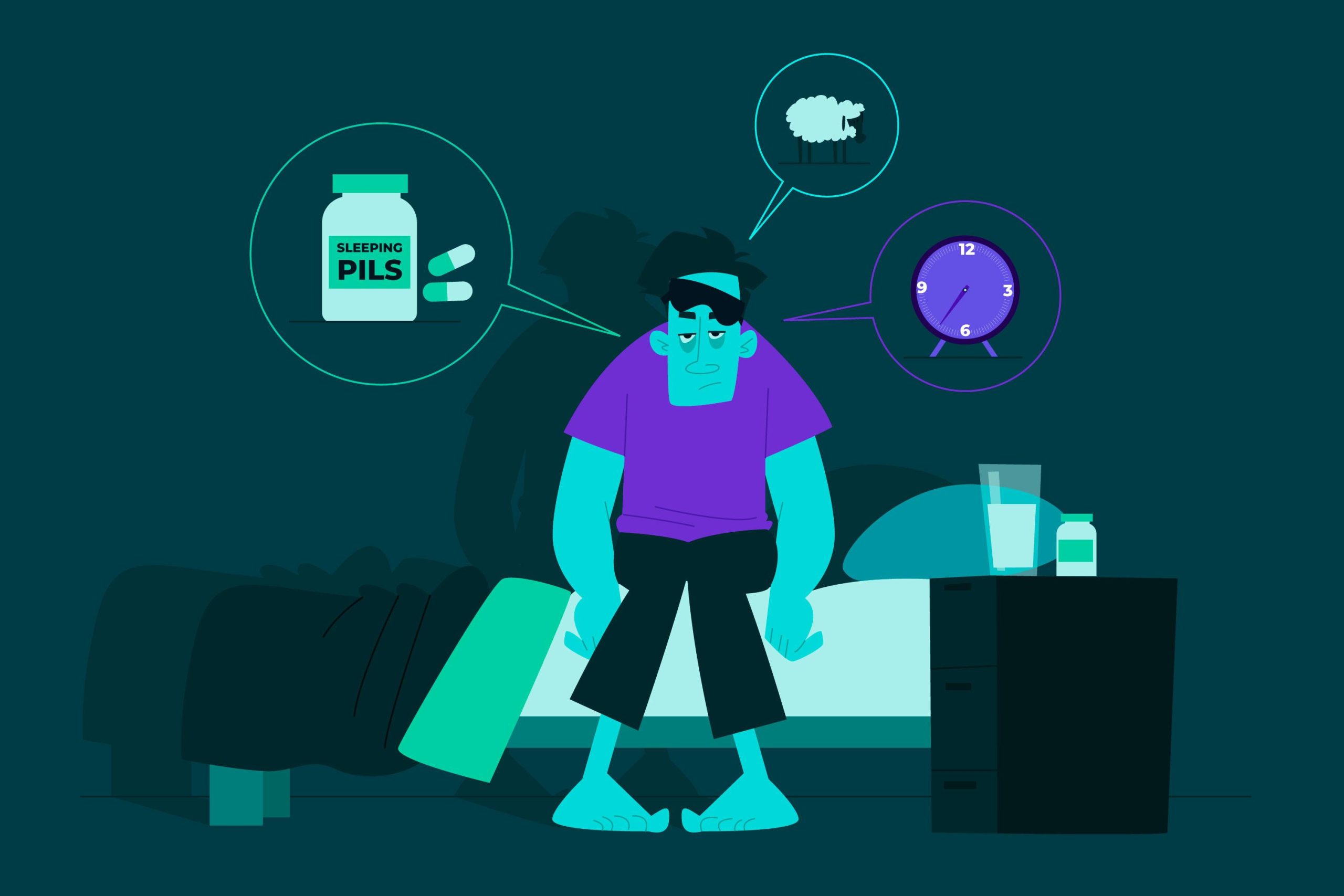If you are thinking of giving up Testosterone Therapy then you are not an exception. Many people evaluate the benefits and the potential side effects and underlying implications. Understanding the consequences of stopping therapy is crucial since it is a requirement for adopting a proactive approach to your health.
When you stop receiving testosterone therapy, your body changes in many different ways, some of which can be more or less noticeable. You may experience mood changes, lack of energy, and even some physical changes. Therefore, you need to know the side effects that will occur so that you are able to choose the best way to pull out. The various symptoms can be completely predicted beforehand, and you can specify exactly how you will treat them as well as how frequently they will appear.
Overview of Testosterone Therapy
Testosterone therapy is the treatment mainly applied for individuals suffering from testosterone deficiency, as it is most frequently the case with hypogonadism or aging. This therapy is offered in various forms: injections, patches, gels, or pellets. The bioavailability and effectiveness of the drug differ in each method.
The purpose of the treatment is to bring back testosterone levels to the normal range, thus life quality is enhanced in several aspects. Among these areas are the following:
- Muscle Mass: Testosterone therapy increases the size and strength of muscles by improving protein synthesis.
- Bone Density: High testosterone levels lower the risk of fractures by contributing to the increase in bone mass.
- Mood: Mood and Well-being: Greater overall mood, energy, and libido have been reported by many patients who have started the treatment.
- Metabolism: Testosterone is a hormone that affects the way fat is distributed and metabolized in the body, thus contributing to weight management in general.
Notwithstanding, the cure comes with risks. Patients under treatment may encounter effects like the following:
- Acne and Skin Reactions: A few might get acne or irritation of the skin especially through topical medications.
- Sleep Apnea: The therapy may be the cause of the extra instances of sleep apnea happening in certain people.
- Cardiovascular Risks: Particularly for those with pre-existing heart conditions, there is a higher than usual risk of issues occurring to the heart.
Thus, monitoring patients during therapy becomes quite a significant point. Regular blood tests are carried out to see whether the patient’s testosterone levels are normal and whether some changes in cholesterol levels and other markers have occurred.
However, stopping testosterone therapy has additional complexities. As the testosterone levels go down, people may have changes in the body that are reflecting current therapy, the full effect of which is different. Some of the most common changes are the following:
- Decreased Energy Levels: A person may feel exhausted or have lower stamina throughout the day when being used to the lower testosterone levels.
- Mood Fluctuations: Quick changes in mood or one’s irritability may go up.
- Loss of Muscle Mass: The decline in muscle mass and strength becomes gradual with decreased use of the therapy.
- Changes in Libido: The need for sexual activities may decrease considerably for most individuals after coming off the therapy.
Among most people, the demand for sexual activities can fade away quite significantly after they come off the therapy. Other factors affecting libido can also be reduced if there is no contact with health care providers throughout the process of using and stopping the therapy.
Effects of Discontinuation
The effects of discontinuing testosterone therapy on the body are physical changes and psychological changes. Knowing these effects assists in controlling the transition and any possible ensuing symptoms.
Physical Changes
Any marked physical changes that occur when testosterone treatment stops are likely to be noticed by you. The decrease in muscle mass is one of the most visible. It is almost always the case that with a weaker, feeble body energy you operate on, though the need to get some food may also be a symptomatic signal of such a condition. Fat begins to be stored in other parts of the body; the abdomen is just one of the places and the muscles begin to decrease. The other part of the body, however, the bone, is also vulnerable to this decrease, making it the high time for fractures to emerge.
It is a fact that energy levels will go down, resulting in symptoms such as tiredness and weariness. In the same line, sexual desire can be disturbed because of the scenario of the hormones’ irregular pattern of rising and falling following each other. Hair loss may or may not happen with changing testosterone levels as well as the texture of the skin which may become drier or oilier depending on hormonal surges.
These changes are usually gradual and may appear within weeks or months of discontinuation. Regular contact with your doctor lets you have a complete, thorough evaluation and get treatment whenever it is necessary.
Psychological Impact
The mental effects of ceasing testosterone therapy are deep and far-reaching. Mood changes are characteristic of all men, and often these changes are related to your aggression or irritability, anxiety, or feeling of depression. Although there is no clear explanation for what percentage of the total number became moodily unstable, an average of 30% of the total can be taken as a useful guide.
On the continuity of cognitive functioning, if there is a point of interference, perhaps the situation of no concentration and memory is noted, and as a result, it is expected that a person might become less of one if, for instance, the person of interest is less in defined routines, and the quality of life of the person is low. Nevertheless, a modern human is used to socializing and if the case above recurs, he/she will automatically become a total stranger, plus not liking it himself/herself.
Regular contact with mental health professionals is one way to keep good emotional health during the change. Communication on your situation lets you use established management strategies and draw comfort to the person with mental health problems.
Needle Health Problems
Coming off testosterone therapy has various implications on one’s health. It is vital to gather all the information of the potential risks for illness and be completely aware.
Shift in These Changes
In simple terms, the discontinuation of the use of testosterone therapy can result in an imbalance of hormonal levels in the human body. This change will be manifested as the body starts to exhibit symptoms such as fatigue, irritability, and mood swings. Another frequent event that will be a sign of the hormone level decreasing is the loss of both desire and fertility. This situation can also be as a result of the decreased level of testosterone.
Even after the body’s normal testosterone production has not yet been fully restored, these symptoms are just temporarily made higher. There are cases where the body even gets to have higher levels of estrogens, and these can produce some unwanted by-effects such as the development of man’s breast and allocation of fat only to some parts of the body. Furthermore, hormonal balance plays a significant role in the overall health of a person, and its sudden change can lead to a significant disruption of it.
Long-Term Health Outcomes
Oftentimes, stoppage of testosterone therapy leads to long-term health outcomes especially when the therapy was in place to solve particular health problems. Gradually, a person may suffer from the loss of muscle mass and, therefore, strength, and hence be limited in their physical ability.
Additionally, there is a likelihood of developing an apple-shaped figure due to growth in fat storage in the area around the abdomen, a condition that can lead to metabolic diseases like insulin resistance. If there is a decrease in bone density, the person gets at a high risk of being in a state of fractures or becoming an osteoporotic patient. At the same time, it should not be forgotten that mental symptoms may remain since approximately 30% of individuals are still exposed to mood disorders.
Hence, such results shed light on the decision to talk to a doctor before changing therapy undertakings. The expert’s advice and guidance will help you minimize the risks and ensure your health is maintained overall.
Considerations Prior to Stopping Treatment
Deciding to terminate testosterone therapy is a process that needs much attention and focus, and you must weigh in many of the possible factors.
Seeking Advice From Medical Authorities
Your decision to stop testosterone therapy is significantly influenced by the key approach to your healthcare providers. Specialists can examine the state of your health individually, go over present symptoms, and explain to you the hazards of discontinuation. Among the possible options, they can outline a program that is right for your individual situation, the way you live, and the history of your testosterone therapy.
Regular checks, where blood tests are done, are inevitable since they provide you with a clear picture of your hormonal state at that moment. Discussing your concerns openly will not only improve your knowledge but also assist you in discovering the source of any potential symptoms and their treatment, thus taking care of your health as the main thing to consider when withdrawing from your therapy.
Setting Life Goals and Measuring Personal Progress
It is important to set life goals and evaluate your success before you quit testosterone therapy. Identify what you want to achieve once you have stopped treatment, be it decreasing side effects or seeking another approach to health. Revisit your decision of stopping therapy and see how it fits your overall health and well-being objectives, lifestyle, and state. Moreover, analyze your current physical and mental well-being as it all relates to these goals. If you know your reasons behind such a decision, this will enable an informed selection of your health course, thus setting realistic expectations of any post-therapy changes you might encounter.
Other Ways that are Helpful when you Stop the Testosterone Therapy
There are several alternative ways available for the cessation of testosterone therapy. They will not only be hormone-balancing but also ensure a healthy life in the absence of using testosterone replacement therapy.
Change in Everyday Life
- Dietary Measures: The consumption of various kinds of food that are really nutritious and contain the important elements your body needs is the basis of a healthful diet; this, at the same time, is expressly beneficial to hormonal health. Zinc-rich foods like peanuts and seeds, along with omega-3 fatty acids found in fish, can join in the regular diet if our goal is to support normal levels of testosterone.
- Keep On Moving: Regular physical activity is highly recommended for everyone. It should include both strength and cardiovascular exercises. This kind of workout not only makes the muscles stronger but also enhances the mood of the individual and makes him or her feel more energetic. You can satisfy the aerobic needs by doing at least 150 minutes of moderate aerobic activity each week and at the same time, you can add some muscle-strengthening activities to stay stiff.
- The quality of sleep is a priority. As a matter of fact, sleep is equally important in the maintenance of health as a good workout. Additionally, one should sleep for 7-9 hours every single night to keep their hormones under control, have the desired balance in mood, and have great cognitive health.
Herbs and Other Supplements
- Ashwagandha: This is a type of herb that is known to have the ability to manage stress, rejuvenate the body and vitality as well as modestly extract testosterone from the blood. Such regularities that are personal can be the result of overconsumption or increased exposure to such things as noise and stress. Before supplementing with ashwagandha, it is very important to have a chat with a medical professional.
- Fenugreek: It has been discovered that fenugreek is capable of boosting your sex drive as well as your testosterone levels. So, it may possibly be used as a means to keep the hormones healthy, and it can be of much help especially during the transition period.
- DHEA: Dehydroepiandrosterone (DHEA) is a hormone that can be changed into testosterone in the body. DHEA supplementation may sometimes be a suggestion of some researchers, but the energy levels, as well as mood, should be consulted with a healthcare provider to get the approval.
Cognitive Behavioral Strategies
- Mindfulness Practices: Mindfulness strategies that include meditation, deep breathing yoga, and the like are the best ways to manage stress, anxiety, and mood swings. These activities will be the means of promoting emotional well-being if done in a uniform way.
- Therapeutic Counseling: Taking part in psychotherapy or cognitive-behavioral therapy (CBT) can lessen the symptoms of depression related to the hormone therapy cessation. The provision of mental health care is an important part of dealing with mood turbulences.
Monitoring and Support
- Regular Check-ups: Being in touch with healthcare professionals should not be overlooked. Regular check-ups can allow you to know about your hormonal levels, in general, your overall health, and any change required in your treatment plan.
- Support Groups: The sharing of experiences and relaxation with people in a similar situation by attending a support group helps you. In addition, you may be exposed to various challenges that can also be good for you and other people.
You may adopt such alternatives to fight off the possible withdrawal effects as well as to step up your health generally after stopping testosterone therapy.
Conclusion
It is perfectly reasonable that a person who has stopped using testosterone can have physical and mental changes. Such changes are not new in a person’s life and can seem quite usual yet impactful. Feelings of being energized, changes in one’s sexual desire, and mood swings are things which quite a lot of individuals would experience. The most important thing is to be in regular contact with your doctor. In this way, the two of you together can both monitor and soothe your symptoms.
Together with medical advice and treatment, there are other options to manage the bodily changes that occur when you are on that journey. It is essential for you to understand that the changes of the mood and the level of self-motivation are going to be the important things in your behavior during the recovery period. This will result in the best course of action for you.
Frequent Ask Questions
What is testosterone therapy?
Testosterone therapy refers to the practice of giving testosterone to men with low hormone levels as a result of hypoglycemia or aging. The work of this method is to help a man in weight gain and also improve bone density, mood better, metabolism and help through means like injection, patches, gel or pellets use.
What happens when I stop testosterone therapy?
Once you stop the testosterone therapy, the symptoms that you might experience at first are decreased energy levels, mood swings, muscle mass loss, and the decrease in libido. Physically, it means that you will lose your strength and gain body fat, while psychologically you may demonstrate the mood of anxiety or mood disorders.
What are the risks of stopping testosterone therapy?
Ending the therapy will lead to hormonal disbalance that can cause fatigue, irritability, and mood swings. Besides, it may reduce libido and fertility. The lasting effects may range from a decrease in muscle mass through obesity in the abdominal area to low bone density, about which you may know very little.
How can I manage side effects after discontinuing therapy?
In dealing with the consequences of ceasing testosterone therapy, it is wise to look for lifestyle modifications such as the right nutrition, engaging in physical activities, and getting a good nap. Talking to herbal supplements about health care professionals and psychological strategies are useful for mental issues as well.
Should I consult a healthcare provider before stopping testosterone therapy?
Definitely yes, it is extremely important to see a healthcare provider before making a decision to cease testosterone therapy. The reason is simple – we can check how your health is going if you have symptoms, and find a plan that will work best for you and still be safe.
Are there alternative approaches to support hormonal balance after stopping therapy?
Yes, it’s quite possible to make lifestyle transformations such as a change in the diet, regular physical exercise, and enough rest could solve the issue. Nonetheless, be aware of herbal supplements, and do think about how you could change your behavior because it might also have a positive impact. But before making any decisions, you should consult your healthcare professional to know your position.






